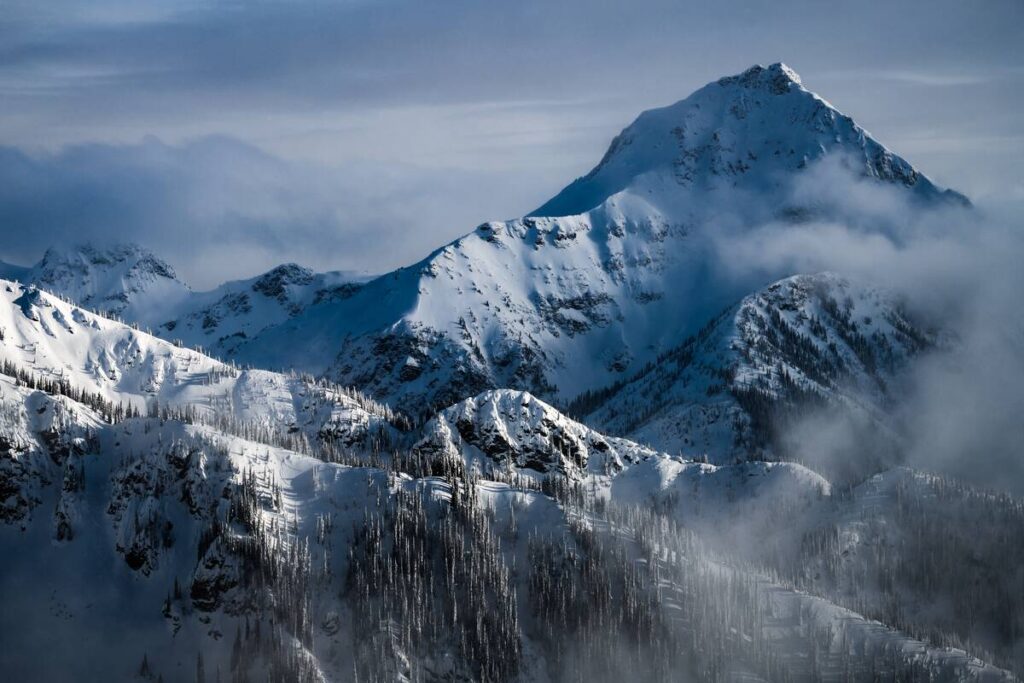Skilled and Professional: Careers in the Outdoors
Skilled and Professional: Careers in the Outdoors

Skilled and Professional: Careers in the Outdoors
There’s a tricky dichotomy in the outdoor sector. The person who calmly arrives to provide first aid after you’ve skied into a tree could be the same person who just threw an avalanche bomb off the ridgeline you wanted to ski next. As they brace your leg, check for spinal damage, and safely ski you out of icy terrain on a sled, you’d be surprised to know that the federal government of Canada considers this person “unskilled”.
In the last ten years, this “unskilled” labourer has undergone over 240 hours of wilderness first aid training, almost comparable to the level of an EMT. They’ve gone through numerous courses in risk management, avalanche mitigation, and performed various rescues. They’ve dedicated countless days to ski in big, unfavourable terrain to be able to ski anything with you in their toboggan.
This highly trained, competent and kind outdoor professional is Caleb. He’s been a Ski Patroller and an avalanche tech at Marmot Basin for 6 years, and a Ski Patroller in Revelstoke for 2 years. He spent 9 seasons white water rafting on class 3 rivers in western Canada. Put simply, Caleb is a calm, capable pro who’s trained to keep you safe when the stakes are high. Why? Because that’s his profession, and he takes it seriously. He’s also invested an immense amount of work, dedication and money into being able to do it really well.
We chatted with Caleb about his career path to becoming an outdoor professional. Since 2015, Caleb has been working towards a nebulous and ranging career path in the outdoors. That’s one of the reasons he’s been drawn towards the industry.
“The main thing is the broadness of the industry: the ability to get your foot in the door, expand from that point on, and not have to make a restrictive decision on lifepath.”
He started at Algonquin College in the Outdoor Adventure Program where he set up foundational skills including risk management, communication and interpersonal skills, and technical competency in white water and ice climbing.
“You get to sample things and then try it out. You rely on mentorship. You look at people doing interesting and exciting work and try to model their pathway. It’s more dynamic.”
Being in the outdoor industry means you don’t have to be boxed in. But yet, you sometimes face a ceiling: people may not take your job seriously.
It’s a chicken and egg situation where there’s not much security or stable pay, and as a result, the public doesn’t respect outdoor professionals. Until there’s action.
“People don’t always recognize the danger they are in. That’s my job. People respect you when things are going down and you’re in charge and you’re keeping them safe. And unfortunately, risk is equated to respect in the industry. It doesn’t have to be that way.”
“Can you keep people safe while also communicating and connecting with them? The job is to introduce people to an unfamiliar environment in a way that feels approachable, not overwhelming.”
Hardly sounds unskilled, eh?
The skills of an outdoor professional are highly transferable. Caleb explains how his seasons as a raft guide prepared him to talk in front of groups, present himself to anyone and find ways to connect with any type of person. Now, in the summer, Caleb’s pursuing a music career and works as a music coordinator for the City of Revelstoke.
“Rafting taught me those skills. Without being put in front of groups of people as a young person, I wouldn’t be able to do it now.”
Caleb’s intentionally winding path reflects the dynamic, curious spirit of the outdoor industry—a field shaped by playful, hardworking, and highly skilled individuals.
Rather than seeking to standardize career paths in the outdoors, Caleb’s story is a reminder to support the diverse ways in which outdoor professionals develop their skills and offer high quality experiences to the public. It’s also a call to action that outdoor professionals need better pay and better career paths. This is valuable work and should be recognized as such.
The Outdoor Council of Canada is currently working towards increased recognition of outdoor guides. Through Project Elevation, we are refining the National Occupational Standards for Outdoor Guides so that the profession is seen as credible and professional.
This project is currently taking place in Alberta and is made possible through funding from the Alberta Government, but this work has national implications. A strong understanding of the professionalism and high skill level of outdoor professionals will advance the industry’s resilience. Check out the project, and sign up for consultations if you are in the Alberta area.